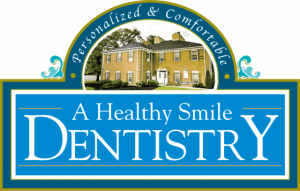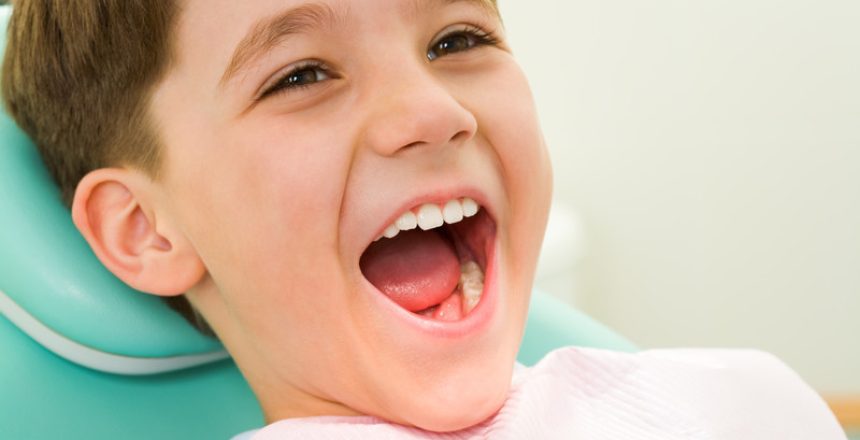Pediatric dentistry is extremely important and should be taken seriously by parents. Pediatric dentistry is and good habits at home are what sets your child up for a lifelong of healthy teeth. It’s best to take your child to a pediatric dentist for many reasons, one being, a pediatric dentist is required to do additional education in order to classify as a pediatric dentist. Luckily. Dr. Gohard at A Healthy Smile Dentistry in Florham Park is a pediatric dentist. The additional education completed teaches dentists how to treat children differently than they would adults when it comes to treatment and how they treat the patient to make them feel as comfortable as possible. Learn more about pediatric dentistry in Florham Park below.
Why is Pediatric Dentistry Important?
You’re probably wondering why pediatric dentistry is even important for your child’s health? Just because they are baby teeth doesn’t mean that their hygiene and health shouldn’t be taken seriously. Pediatric dentistry ensures your child is brushing and flossing properly, addresses any problems that may be arising or that can be fixed early on, and also teaches your child that the dentist shouldn’t be feared and they should continue visiting regularly throughout their life for the best dental health possible. When you bring your child to the dentist regularly as young as 3, this teaches your child to not be afraid of the dentist and to start taking their dental health seriously at a young age.
Dr. Gohard will take care of your child and make sure they are comfortable throughout the entire experience. Parents who don’t take their children to the dentist regularly may end up with children who suffer from dental anxiety or a fear of the dentist, which can result in them avoiding cleanings and treatments in the future which will leave them with poor dental health for life. Pediatric dentistry in Florham Park is important for your child’s health.
What is my Child’s First Dental Visit Like?
As soon as you arrive with your young one, we recommend starting regular visits as once their first teeth have come in. Teeth can start decaying as soon as they come in, so it’s important for your child to be seen as soon as teeth start coming in. In order to make your child feel comfortable, when you first arrive, we will let them wander around and explore the office in order to feel comfortable. We will also provide some toys and child activities to keep them occupied until the dentist is ready.
Once your short wait is over, we will call both of you into the back where we will let your child explore the exam room, check out the instruments and ask any questions they might have. During the visit, we will be taking x-rays using our digital x-ray machine to look for any cavities, crooked teeth, or other dental problems that may arise in the near future or need immediate attention.
We will also perform a cleaning and fluoride treatment as well as teach your child how to properly brush and floss so they can take those habits home with them. Our dentist will let you know if there are any problems or if there is anything you should look out for as a parent. If your child needs treatment, we may recommend giving them some laughing gas (nitrous oxide) to help them relax and make it a little easier for us to perform the treatment.
After the visit is complete, we will give your child a prize for being brave and a toothbrush kit and send you on your way. Please be sure to schedule their next cleaning before you leave so you don’t forget to schedule it in the future. Making sure your child comes in twice a year for cleanings sets up a routine for optimal oral health for life.
Tips for Child Care at Home
In order for your child to be healthy at home, here are a few tips you can use at home for good oral health. First, if your child has a thumb sucking or sucking habit, it’s important to stop this immediately as it can lead to tooth misalignment. It’s also important to not let your child use sippy cups for an extended period of time. It’s a good starter cup, but it can warp your child’s teeth if the use is continuous throughout toddler years. Switch to a straw cup if needed.
If your child is too young to be brushing their own teeth, you can take a small kid’s toothbrush and a very tiny amount of toothpaste and brush your baby’s teeth yourself, twice a day. It’s important to start brushing your baby’s teeth for them to ensure that no decay happens. You wouldn’t want them to go to their first dental visit and have to get 5 cavities filled.
Your child should be using a soft kid-sized toothbrush. We recommend electric toothbrushes if possible as they usually have a timer that shuts the toothbrush off after two minutes. This helps ensure your child is brushing for the recommended amount of time. Make sure you are replacing the toothbrush or toothbrush head every 3 months. This is to ensure the toothbrush is working properly and to avoid the spread of germs.
When it comes to children, don’t use more than a pea-sized amount of toothpaste on their toothbrush in case they swallow it. Since toothpaste contains fluoride, it isn’t safe to consume otherwise fluorosis can occur which is a damaging oral condition that is caused by an over-ingestion of fluoride.
Help your child brush twice a day, after breakfast and before bedtime. Make sure you are watching them closely to ensure they are brushing correctly. Also, make sure they are flossing daily to get them into the habit of doing it. This will be a great habit to build since most adults don’t even floss every day. Flossing is beneficial for fighting gum disease and cavities and should be taken seriously during childhood as much as adulthood.
Another tip for home tooth care is to avoid starchy and sugary snacks regularly. It’s okay for your child to have candy, soda, and chips every once in a while, but it’s not healthy for their teeth, or body, to have these kinds of foods regularly. Even with fruit, your child should rinse their mouth out with water to help get some of the sugar off their teeth. You should also avoid giving your child juice all the time. Juice contains just as much sugar as soda, and should only be given occasionally. Try giving your child water to sip on, and if they are not happy about it, at least water down the juice. Your child should be rinsing their mouth with water after every meal. This will help remove any food or sugar from the teeth until it’s time to brush them.
Talk to your pediatric dentist in Florham Park about fluoridating your child’s teeth. Check with your local water department to find out if your water supply contains fluoride. If your child drinks filtered or bottled water, you should consider investing in a daily fluoride mouthwash to ensure your child has enough daily fluoride to protect against cavities and tooth decay. Kids’ mouthwash and toothpaste come in fun flavors like bubblegum so at least your child can enjoy the flavor! Fluoride works by strengthening the enamel which ultimately protects against cavities. Implementing regular fluoride treatments in your child’s daily routine can help protect him/her from potentially bad oral health.
But, I Thought Baby Teeth Aren’t Important?
Yes, the baby teeth are temporary, but they are just as important as the permanent adult teeth. Most children don’t finish losing all of their baby teeth until around age 12 which means these teeth will be around the most of their childhood. Most dentists will not just pull the teeth if there are problems with them because that can cause further problems with the adult teeth coming in. When a tooth is lost too early, it can cause the other teeth to shift which can prevent enough room for adult teeth to come in. Another reason baby teeth are important is that your child needs them to eat and talk correctly. Without the baby teeth, your child may face speech problems like having trouble saying sounds like “l,” “th” and “sh.”
Myth: Children Under Two Shouldn’t Have Fluoride Toothpaste
Experts today are advising parents to give their children, regardless of age, fluoride toothpaste because it’s been found that toothpaste without fluoride doesn’t protect the teeth from decay and cavities. If you want to go down the anti-fluoride route, you might as well just brush your child’s teeth white just water and a toothbrush. The fluoride in toothpaste is only harmful when large quantities are swallowed. As long as only put a small dab of toothpaste on the toothbrush, your child will be fine if some gets swallowed. Fluoride in toothpaste reaches all areas of the tooth and helps strengthen the enamel to fight off tartar and decay. Your child will be safe if you only use the advised amount of toothpaste listed above.
I Thought Babies Didn’t Get Cavities?
Yes, babies can get cavities. Any living being with teeth is able to get a cavity. Therefore it’s important to brush even your baby’s teeth. It’s possible for a tooth to get infected or abscessed, causing your child pain and force them to endure a scary and painful dental treatment. Studies have found that children who had cavities in their baby teeth were three times as likely to develop cavities in their adult teeth. In order to prevent cavities, we advise parents not give their children a bottle of formula or juice for them to suck on before bedtime. This will let them go to sleep with teeth covered in sugar which is a thriving component in cavities.
Keep Your Own Mouth Clean
Tooth decay can begin as soon as your child’s teeth grow in. The germs that cause tooth decay are called mutans streptococcus. This type of bacteria feeds on sugar and is known to produce acid that eats away at the tooth structure by depleting calcium. Babies are not born with this bacteria in their mouths. It is transferred from parents’ own saliva transferred into the baby’s mouth by sharing utensils or a toothbrush or simply from letting your child stick their fingers in your mouth. If the parent has a lot of cavities, this is how the bacteria is passed on.
This can result in cavities as well as potentially expose your child to more germs that can result in colds or other sicknesses. We recommend that parents keep their mouths just as clean as their child’s and to resist sharing utensils or spreading mouth bacteria in any way. During pregnancy, it’s also important to maintain a nutritious diet as this can give the child a stronger enamel development while in the womb.
Schedule Your Child’s Dental Exam Today
Whether you child’s first tooth has just erupted, or they have never been to the dentist, please contact our pediatric dentist in Florham Park to schedule your child’s next dental exam. Dr. Gohard will treat your child in a calm manner to ensure they have a comfortable visit without developing dental anxiety or a fear of the dentist. We can help treat your child for any potential dental problems as well as provide them with a complete dental cleaning. Schedule a visit with A Healthy Smile Dentistry in Florham Park by calling us at (973) 377-2222 or by visiting our online contact form on our contact page. We will ensure your child has a pleasant visit!

